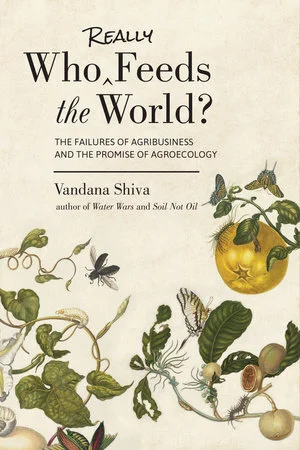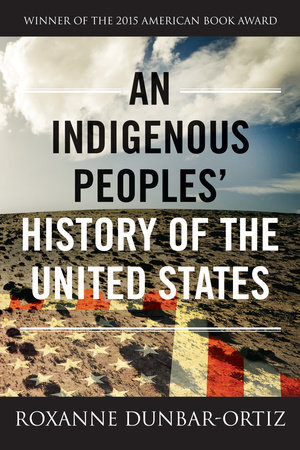Tishman Center 2020 Book List
The beginning of a new decade is a perfect time for some lists of “best” films/ books/ places-to-go-to in the New Year. So, the Tishman Center decided to put together our own list of books published in the past decade that we think are essential in understanding the how’s and why’s of climate change and the systemic injustices that underline it. This list is by no means extensive but contains some of our team’s favorite titles as well as books we look forward to diving into in 2020.
Globalism and Localization: Emergent Solutions to Ecological and Social Crises edited by Jeanine M. Canty, 2019
“Considering the context of the present ecological and social crisis, this book takes an interdisciplinary approach to explore the relationship between globalism and localization. Globalism may be viewed as a positive emergent property of globalization. The latter depicts a worldwide economic and political system, and arguably a worldview, that has directly increased planetary levels of injustice, poverty, militarism, violence, and ecological destruction. In contrast, globalism represents interconnected systems of exchange and resourcefulness through increased communications across innumerable global diversities. In an economic, cultural, and political framework, localization centers on small-scale communities placed within the immediate bioregion, providing intimacy between the means of production and consumption, as well as long-term security and resilience. There is an increasing movement towards localization in order to counteract the destruction wreaked by globalization, yet our world is deeply and integrally immersed within a globalized reality.”
Strangers in Their Own Land: Anger and Mourning on the American Right by Arlie Russell Hochschild, 2018
“When Donald Trump won the 2016 presidential election, a bewildered nation turned to Strangers in Their Own Land to understand what Trump voters were thinking when they cast their ballots. Arlie Hochschild, one of the most influential sociologists of her generation, had spent the preceding five years immersed in the community around Lake Charles, Louisiana, a Tea Party stronghold. As Jedediah Purdy put it in the New Republic, “Hochschild is fascinated by how people make sense of their lives. . . . [Her] attentive, detailed portraits . . . reveal a gulf between Hochschild’s ‘strangers in their own land’ and a new elite.”
Energy Democracy: Advancing Equity in Clean Energy Solutions edited by Denise Fairchild and Al Weinrub, 2017
“This volume brings together racial, cultural, and generational perspectives. This diversity is bound together by a common operating frame: that the global fight to save the planet—to conserve and restore our natural resources to be life-sustaining—must fully engage community residents and must change the larger economy to be sustainable, democratic, and just. The contributors offer their perspectives and approaches to climate and clean energy from rural Mississippi, to the South Bronx, to Californian immigrant and refugee communities, to urban and semi-rural communities in the Northeast. Taken together, the contributions in this book show what an alternative, democratized energy future can look like, and will inspire others to take up the struggle to build the energy democracy movement.”
The Winona LaDuke Chronicles: Stories from the Front Lines in the Battle for Environmental Justice by Winona LaDuke, 2017
“Chronicles is a major work, a collection of current, pressing and inspirational stories of Indigenous communities from the Canadian subarctic to the heart of Dine Bii Kaya, Navajo Nation. Chronicles is a book literally risen from the ashes—beginning in 2008 after her home burned to the ground—and collectively is an accounting of Winona’s personal path of recovery, finding strength and resilience in the writing itself as well as in her work. Long awaited, Chronicles is a labour of love, a tribute to those who have passed on and those yet to arrive.”
The Color of Law: A Forgotten History of How Our Government Segregated America by Richard Rothstein, 2017
“In The Color of Law, Richard Rothstein argues with exacting precision and fascinating insight how segregation in America—the incessant kind that continues to dog our major cities and has contributed to so much recent social strife—is the byproduct of explicit government policies at the local, state, and federal levels.”
Who Really Feeds the World? THE FAILURES OF AGRIBUSINESS AND THE PROMISE OF AGROECOLOGY By Vandana Shiva, 2016
“Debunking the notion that our current food crisis must be addressed through industrial agriculture and genetic modification, author and activist Vandana Shiva argues that those forces are in fact the ones responsible for the hunger problem in the first place. Who Really Feeds the World? is a powerful manifesto calling for agricultural justice and genuine sustainability, drawing upon Shiva’s thirty years of research and accomplishments in the field. Instead of relying on genetic modification and large-scale monocropping to solve the world’s food crisis, she proposes that we look to agroecology—the knowledge of the interconnectedness that creates food—as a truly life-giving alternative to the industrial paradigm. Shiva succinctly and eloquently lays out the networks of people and processes that feed the world, exploring issues of diversity, the needs of small farmers, the importance of seed saving, the movement toward localization, and the role of women in producing the world’s food.”
Stamped from the Beginning by Ibram X. Kendi, 2016
“Some Americans cling desperately to the myth that we are living in a post-racial society, that the election of the first Black president spelled the doom of racism. In fact, racist thought is alive and well in America - more sophisticated and more insidious than ever. And as award-winning historian Ibram X. Kendi argues in Stamped from the Beginning, if we have any hope of grappling with this stark reality, we must first understand how racist ideas were developed, disseminated, and enshrined in American society.”
The Sixth Extinction: An Unnatural History by Elizabeth Kolbert ,2015
“In prose that is at once frank, entertaining, and deeply informed, New Yorker writer Elizabeth Kolbert tells us why and how human beings have altered life on the planet in a way no species has before. Interweaving research in half a dozen disciplines, descriptions of the fascinating species that have already been lost, and the history of extinction as a concept, Kolbert provides a moving and comprehensive account of the disappearances occurring before our very eyes. She shows that the sixth extinction is likely to be mankind's most lasting legacy, compelling us to rethink the fundamental question of what it means to be human.”
An Indigenous Peoples’ History of the United States by Roxanne Dunbar-Ortiz, 2015
“Today in the United States, there are more than five hundred federally recognized Indigenous nations comprising nearly three million people, descendants of the fifteen million Native people who once inhabited this land. The centuries-long genocidal program of the US settler-colonial regimen has largely been omitted from history. Now, for the first time, acclaimed historian and activist Roxanne Dunbar-Ortiz offers a history of the United States told from the perspective of Indigenous peoples and reveals how Native Americans, for centuries, actively resisted expansion of the US empire.”
This Changes Everything: Capitalism Versus the Climate by Naomi Klein, 2014
“In her most provocative book yet, Naomi Klein, author of the global bestsellers The Shock Doctrine and No Logo, tackles the most profound threat humanity has ever faced: the war our economic model is waging against life on earth. Klein exposes the myths that are clouding the climate debate. We have been told the market will save us, when in fact the addiction to profit and growth is digging us in deeper every day. We have been told it’s impossible to get off fossil fuels when in fact we know exactly how to do it—it just requires breaking every rule in the “free-market” playbook: reining in corporate power, rebuilding local economies, and reclaiming our democracies.”
Before the Lights go Out by Maggie Koerth-Baker, 2012
"Hi, I'm the United States and I'm an oil-oholic."" We have an energy problem. And everybody knows it, even if we can't all agree on what, specifically, the problem is. Rising costs, changing climate, peaking oil, foreign oil, public safety—if the fears are this complicated, then the solutions are bound to be even more confusing. Maggie Koerth-Baker—science editor at the award-winning blog BoingBoing.net—finally makes some sense out of the madness. Over the next 20 years, we'll be forced to cut 20 quadrillion BTU worth of fossil fuels from our energy budget, by wasting less and investing in alternatives. To make it work, we'll need to radically change the energy systems that have shaped our lives for 100 years. And the result will be neither business-as-usual, nor a hippie utopia. Koerth-Baker explains what we can do, what we can't do, and why "The Solution" is really a lot of solutions working together.”
Tropic of Chaos: Climate Change and the New Geography of Violence by Christian Parenti, 2011
“From Africa to Asia and Latin America, the era of climate wars has begun. Extreme weather is breeding banditry, humanitarian crisis, and state failure. In Tropic of Chaos, investigative journalist Christian Parenti travels along the front lines of this gathering catastrophe–the belt of economically and politically battered postcolonial nations and war zones girding the planet’s midlatitudes. Here he finds failed states amid climatic disasters. But he also reveals the unsettling presence of Western military forces and explains how they see an opportunity in the crisis to prepare for open-ended global counterinsurgency.”












